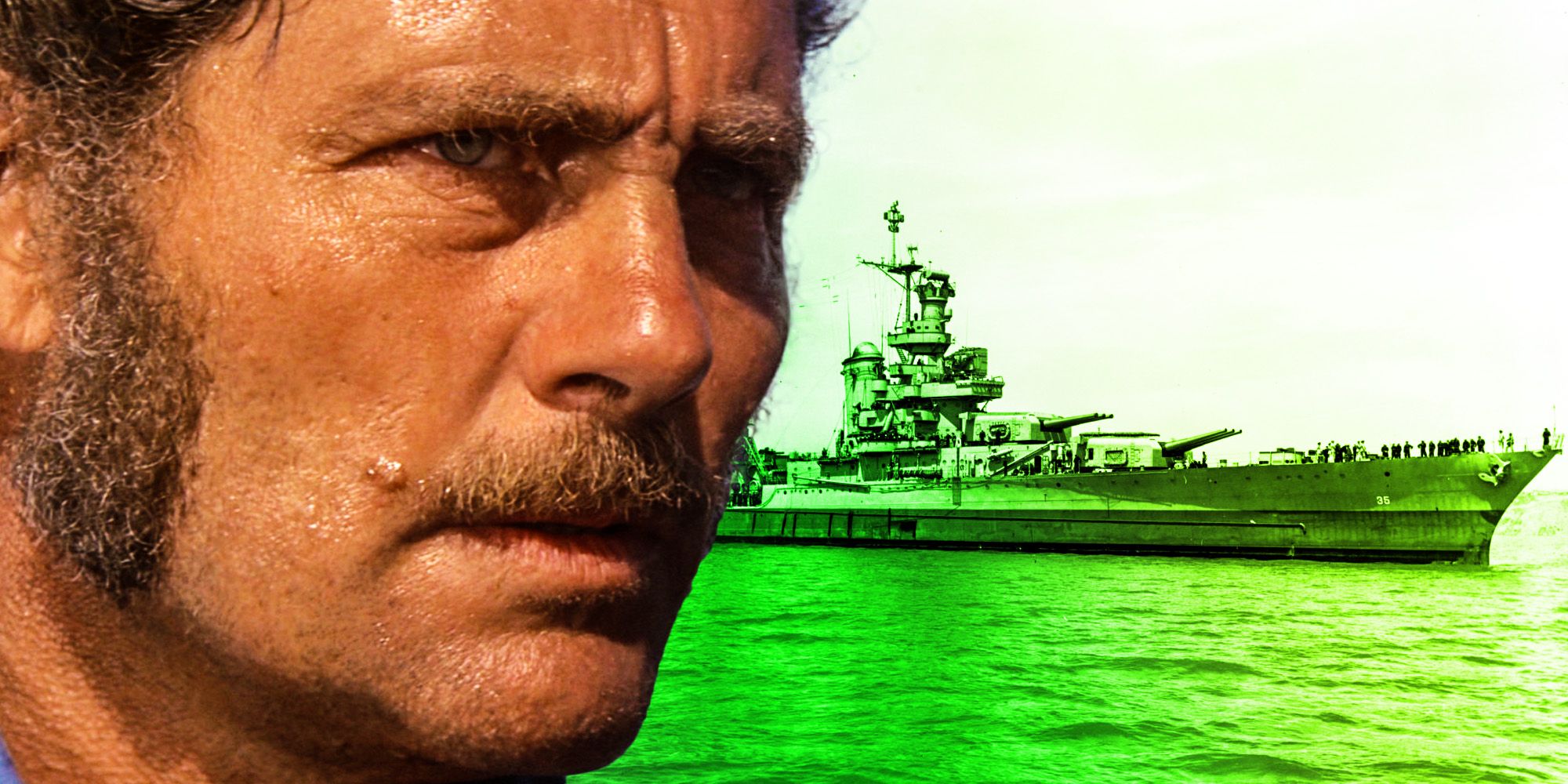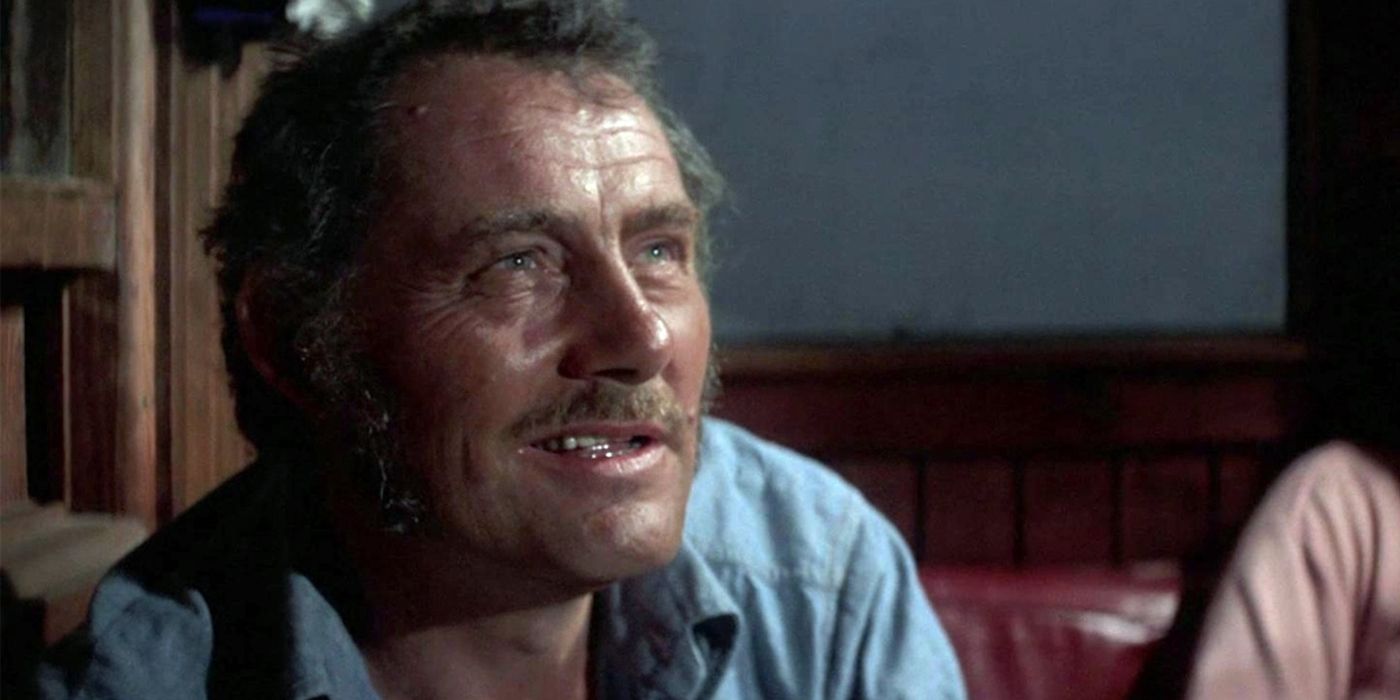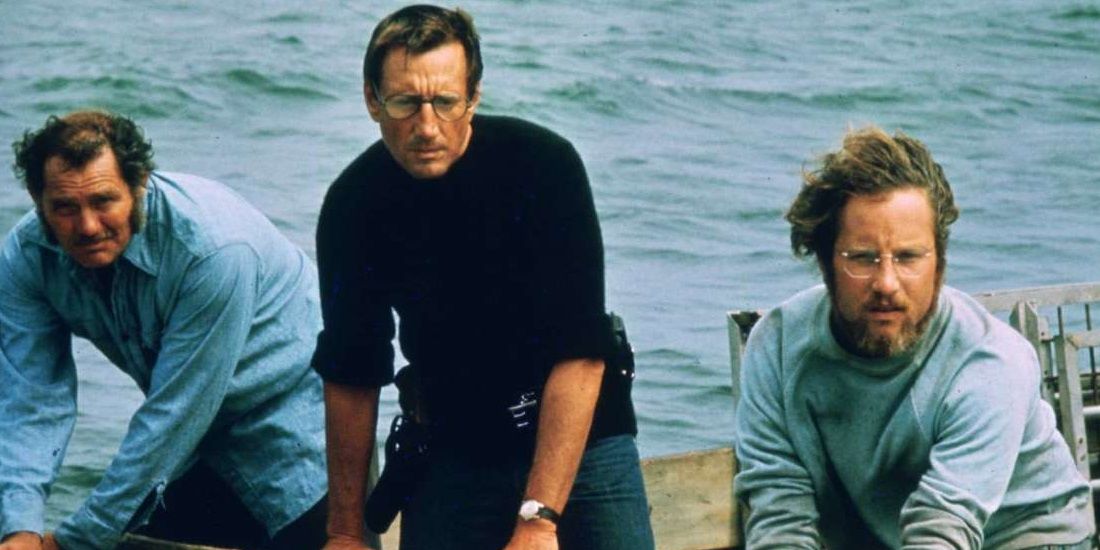Quint’s infamous monologue from Jaws was based on a true story, but how much of the speech reflected the real USS Indianapolis sinking? Jaws premiered in 1975 and soon became one of the first big blockbusters, launching the Jaws movie franchise. While Jaws is not a conventional slasher movie, it contains elements of the genre, such as Quint’s character being the common horror trope of an expert obsessed with a terrifying villain. What set Jaws apart from the paranormal serial killer stereotypes of many horror movies was its root in a universal setting; anyone could encounter a shark if they brave open waters, and shark attacks weren’t a movie-crafted phenomenon.
Quint's story heightened the horror elements of Jaws and the reality of Amity Island's fear, and the sentiment is similar to a haunted house movie based on true events. One of the most famous scenes is Quint (Robert Shaw) recounting his experience in the aftermath of the USS Indianapolis' sinking, with his harrowing story of men — who are already going through a horrifying experience — meeting a new unforeseen enemy in scores of sharks. Viewers don't have to see a flashback of the incident to understand the impact of the scene: it’s all in Quint’s vivid description, tone of his voice, and the solemn silence from Brody and Hooper.
This scene comes around midway through Jaws where Chief Brody (Roy Schneider), Hooper (Richard Dreyfuss), and Quint are on the Orca at night, fixing the boat and waiting for the shark to reappear. As they drink and impatiently wait, the men begin telling the stories behind their scars. Their light-hearted tales are rounded off by Quint, who reveals he is a survivor of the 1945 USS Indianapolis attack, a real event in which an American WWII ship sunk in the ocean following an attack by a Japanese submarine. Many who survived were killed or injured by sharks while stranded in the water. While most of Quint's story is historically accurate, several details were either mistaken or exaggerated by Jaws director Steven Spielberg for dramatic effect.
Quint's Story In Jaws – True Story Explained
For the most part, Quint tells the real tragedy of the horrifying mass shark attack and the greatest loss of life event at sea for the US Navy. Quint is correct that while on a top-secret mission from Tinian to Leyte, the Indianapolis was struck twice in the side by Japanese torpedoes. Like the Jaws story detailed, the ship of 1,195 men was transporting parts for the bomb that would later be dropped on Hiroshima. The ship sunk in twelve minutes, some men were eaten and killed by sharks, and only 316 were pulled out of the water by a pilot who spotted them a few days later.
Though the general details of Quint’s monologue follow the event correctly, many aspects, like the shark deaths mentioned in Jaws, were modified for emotional effect. For starters, the boat sunk on July 30th, not June 29th. There was also no "Herbie Robinson from Cleveland" aboard, so Quint seeing him half-eaten was fabricated. Also, Quint believes their mission was so secretive nobody sent a distress signal, but historically a signal was sent and ignored by a drunk radio commander. The biggest discrepancy is that sharks were the main cause of death for the men in the water. Quint's story in Jaws implies 600 men were killed by sharks, whereas sharks truly only attacked a small amount; many succumbed to hypothermia, suicide, or homicide from delusion, starvation, and thirst.
The Meaning Behind Quint's Story In Jaws, Explained
While the true story of the USS Indianapolis' sinking remains the largest single shark attack on humans, the tragedy was exaggerated in Jaws to more effectively convey Quint’s disdain for sharks and his obsession with capturing Amity's ultimate terror. Quint's character in Jaws becomes increasingly unhinged during the course of the film, going so far as to break the boat radio when the shark starts attacking the Orca. This leaves the crew to their own devices, which are few and far between, and culminates in the shark hunter's death. Quint's grizzled and resolute nature likely stems from the trauma he experienced during World War 2. Coupled with hate, greed, and hubris, Quint proves to be a volatile leader in the shark hunt. Quint's story in Jaws is a testament to his behavior and ideology in the film.



